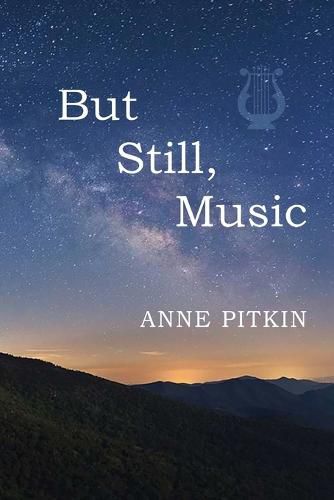Readings Newsletter
Become a Readings Member to make your shopping experience even easier.
Sign in or sign up for free!
You’re not far away from qualifying for FREE standard shipping within Australia
You’ve qualified for FREE standard shipping within Australia
The cart is loading…






This title is printed to order. This book may have been self-published. If so, we cannot guarantee the quality of the content. In the main most books will have gone through the editing process however some may not. We therefore suggest that you be aware of this before ordering this book. If in doubt check either the author or publisher’s details as we are unable to accept any returns unless they are faulty. Please contact us if you have any questions.
Anne Pitkin’s third book, But Still, Music spans her childhood as a privileged white child in the Jim Crow South to the period of her grown daughter’s death. The poems visit the disquieting contradictions of a southern childhood marked by honeysuckle and lightning bugs and the racist culture that was the air she breathed. A number of poems address the loss of her daughter. Still, in the end, as she says in the final poem. “Tide, There you’ve been, loves of my life./ There you’ve changed me, one by one.
$9.00 standard shipping within Australia
FREE standard shipping within Australia for orders over $100.00
Express & International shipping calculated at checkout
This title is printed to order. This book may have been self-published. If so, we cannot guarantee the quality of the content. In the main most books will have gone through the editing process however some may not. We therefore suggest that you be aware of this before ordering this book. If in doubt check either the author or publisher’s details as we are unable to accept any returns unless they are faulty. Please contact us if you have any questions.
Anne Pitkin’s third book, But Still, Music spans her childhood as a privileged white child in the Jim Crow South to the period of her grown daughter’s death. The poems visit the disquieting contradictions of a southern childhood marked by honeysuckle and lightning bugs and the racist culture that was the air she breathed. A number of poems address the loss of her daughter. Still, in the end, as she says in the final poem. “Tide, There you’ve been, loves of my life./ There you’ve changed me, one by one.